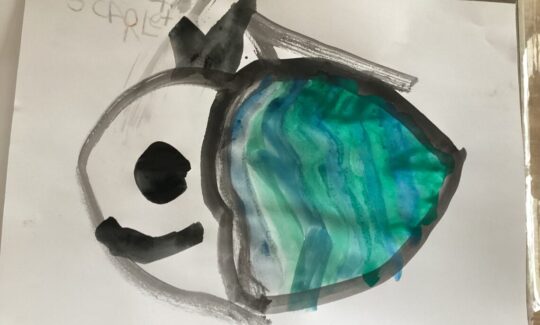Music and Childhood Development
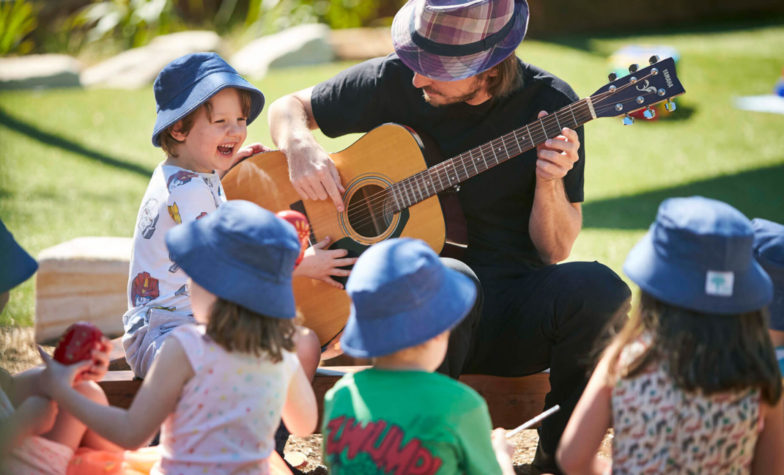
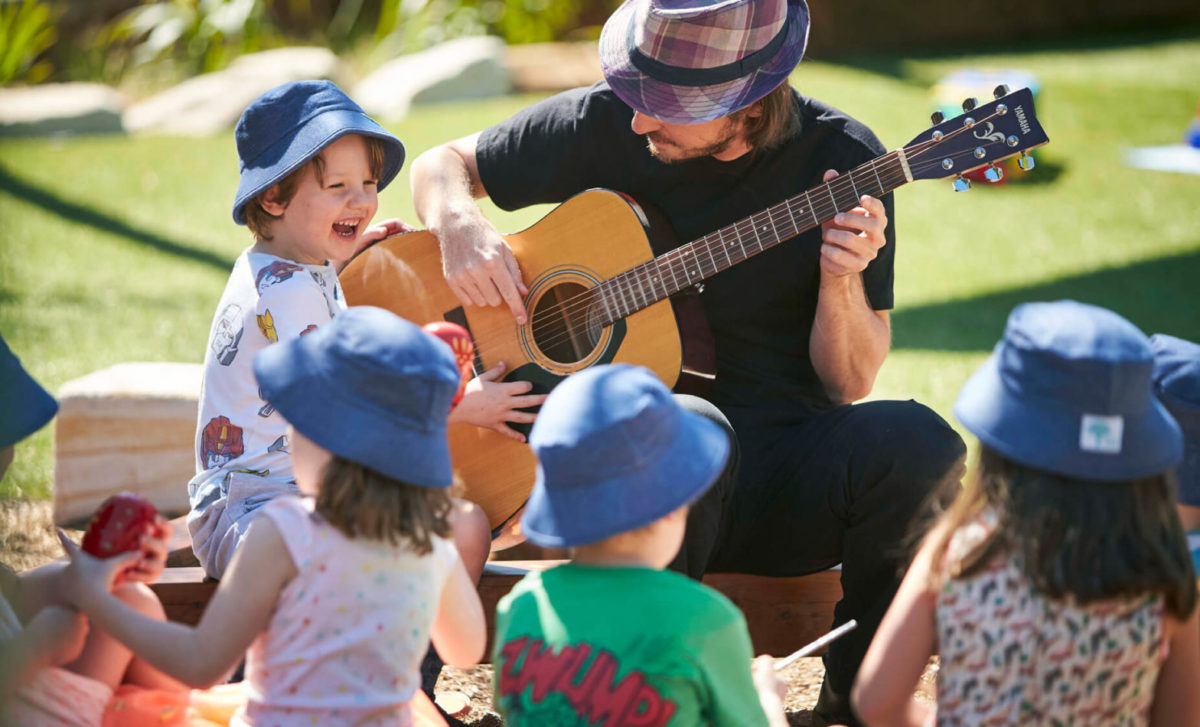
What is musical development in early childhood?
Musical awareness and development begins at a very early age for children. Exposing children to music during early development helps them learn the sounds and meanings of words. We all know how engaging rattles and shakers are to very young children, and how singing to a baby will capture their full attention. We know that music in early childhood has its benefits. But did you know that these musical foundations are changing an infant and toddler’s brain in ways that will benefit them for life?
What are the benefits of music in a child’s development?
Recent neuroscientific research suggests that early exposure to music helps create neural connections in developing brains. It also increases abilities in other areas, including:
- Improved problem-solving skills
- The long-term enhancement of spatial and temporal reasoning skills
- Improved language skills
- Improved outcomes in mathematical abilities
- Increases in short and long-term memory
- Greater social skills and social awareness
- Enhanced creative intelligence and developed logical brain functions
- Enhanced ability to think, comprehend and understand
Music in childhood affects mood and energises the spirit. Music can also help to reduce stress, relieve tension and regulate emotions. Who hasn’t marvelled at the effect that humming a lullaby and gently rocking has on an overtired baby or distressed child? Music in childhood also provides an opportunity for children to engage in a pleasurable and shared experience. It connects children with their peers, adults and their environment, supporting their developing social skills and attention span.
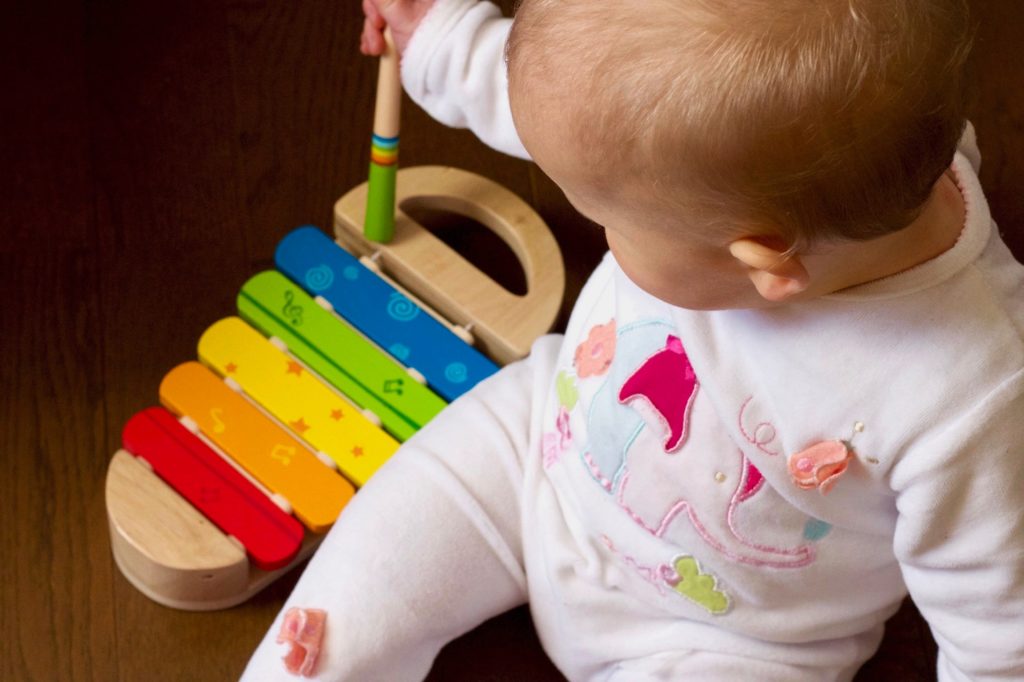
What music is beneficial for child development?
Infants: Infants can find quiet background music soothing, especially while they sleep. They also love it when you sing simple, short songs to them. Try singing when you do activities with them such as bathing, dressing, or eating.
Toddlers: Toddlers love repetitive music, which encourages language and memorisation. They enjoy clapping and dancing to music and laughing at silly songs.
Preschoolers: Preschoolers enjoy nursery rhymes and songs with familiar things like animals, toys activities and people. They enjoy singing and aren’t afraid to do it loudly!
Our music program
Music is an integral part of our OAC Grow curriculum for babies, toddler and preschool/kindergarten children. Our Educators provide opportunities for planned and spontaneous music and movement throughout the day. Educators also incorporate music for toddlers and early years in everyday routines.
How to introduce music at home
- Sing to your baby: Don’t worry about how you sound. Your child won’t critique you but will love the effort and attention. Your selections don’t have to be limited to lullabies. Try singing songs during play time, too. Stack a tower of blocks and knock it down as you sing “London Bridge.” Even a simple game of peekaboo can become musical theatre when you sing the words out loud.
- Share songs: That go with simple hand motions or dance moves, like “Itsy Bitsy Spider,” “The Wheels on the Bus,” or “Two Little Blackbirds.” If you’d like to introduce an instrument, keep it simple.
- Let your child make their own music: Very young children will enjoy instruments they can shake — bells, rattles, shakers, tambourines, or rain sticks. As your child gets older and a little more coordinated, try rhythm instruments that can be banged. Drums, cymbals, or xylophones are a great option. Your child may enjoy banging on a drum, piano, or xylophone, but don’t take things too seriously at this age. Most children aren’t ready to start instrument lessons until they’re 5 to 7 years old.
- Dance to different kinds of music: You might even include props such as scarves and ribbons to engage your child’s senses.
- Make music a part of your everyday routine: Songs can help your child know what to expect and feel more secure. For instance, if you always sing a lullaby at bedtime or naptime, your child will come to see this as a cue for “go to sleep.”
For more related reading, check out our Discover and Learn articles.
Only About Children can help your child to grow, make friends and explore the world.
Only About Children can help your child to grow, make friends and explore the world.
Related Reads
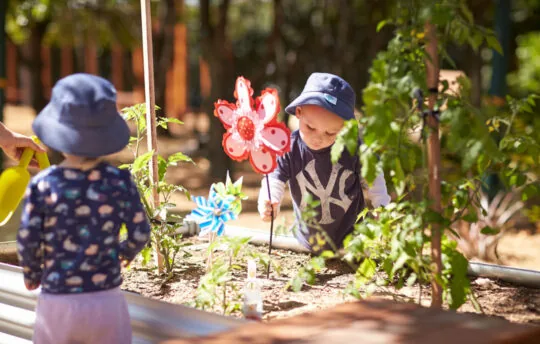
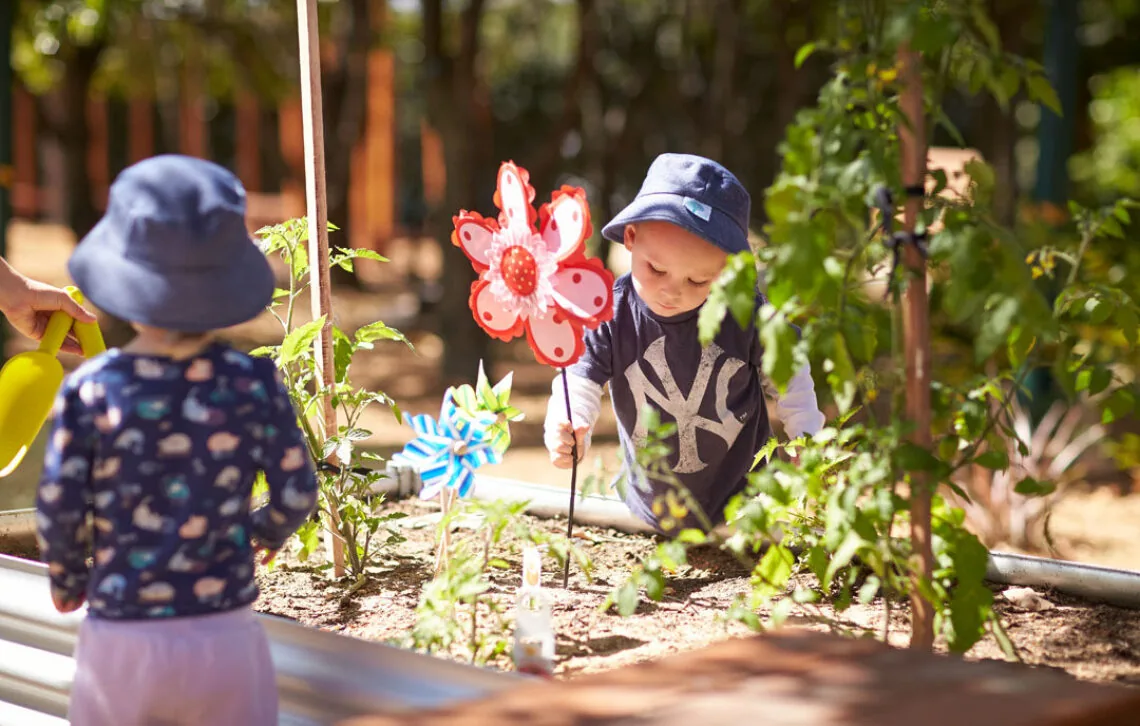
Choosing The Right Preschool/Kindergarten For Your Child
Choosing the right Preschool/Kindergarten for you child can be a daunting task. When exploring the ideal preschool choices for your child, there is no need to navigate blindly. Simply by asking the right questions, you can find the perfect match.

Picnic Fun and Family Connections at OAC Mernda
Our OAC Mernda community came together for International Picnic Day, enjoying a fun-filled afternoon of connection, conversation and belonging.